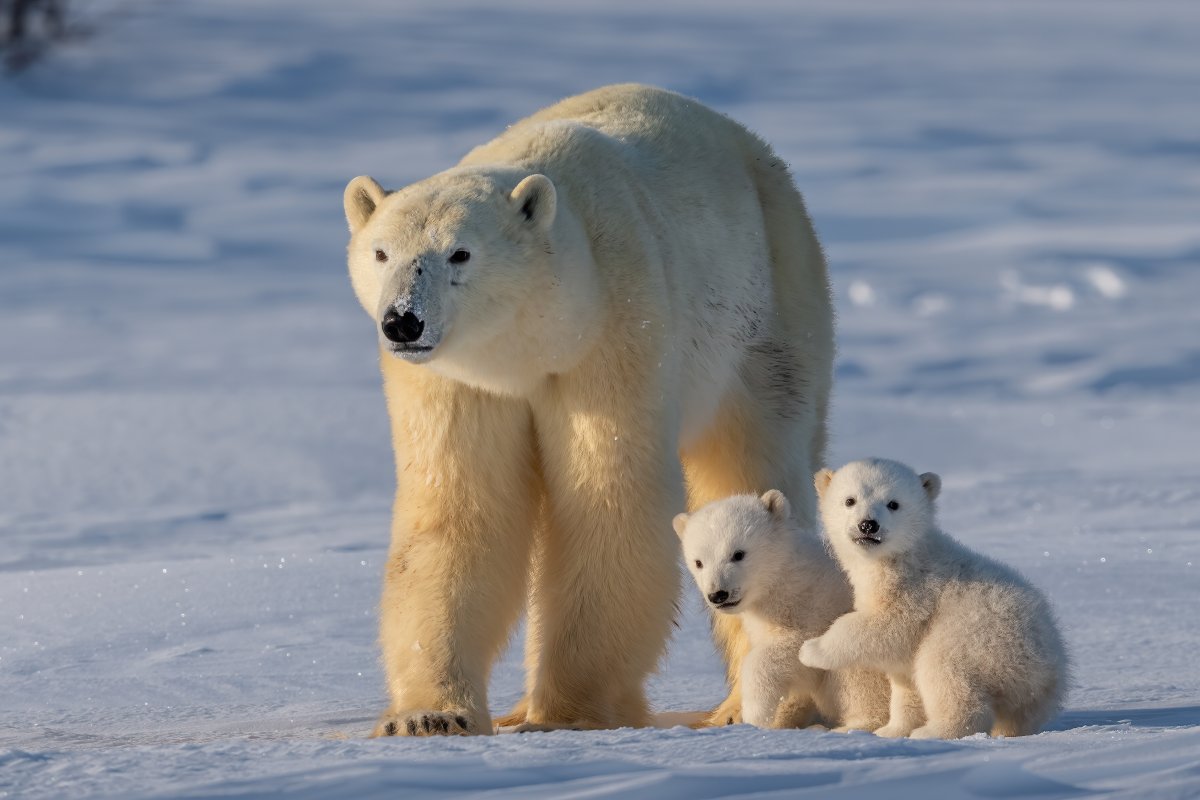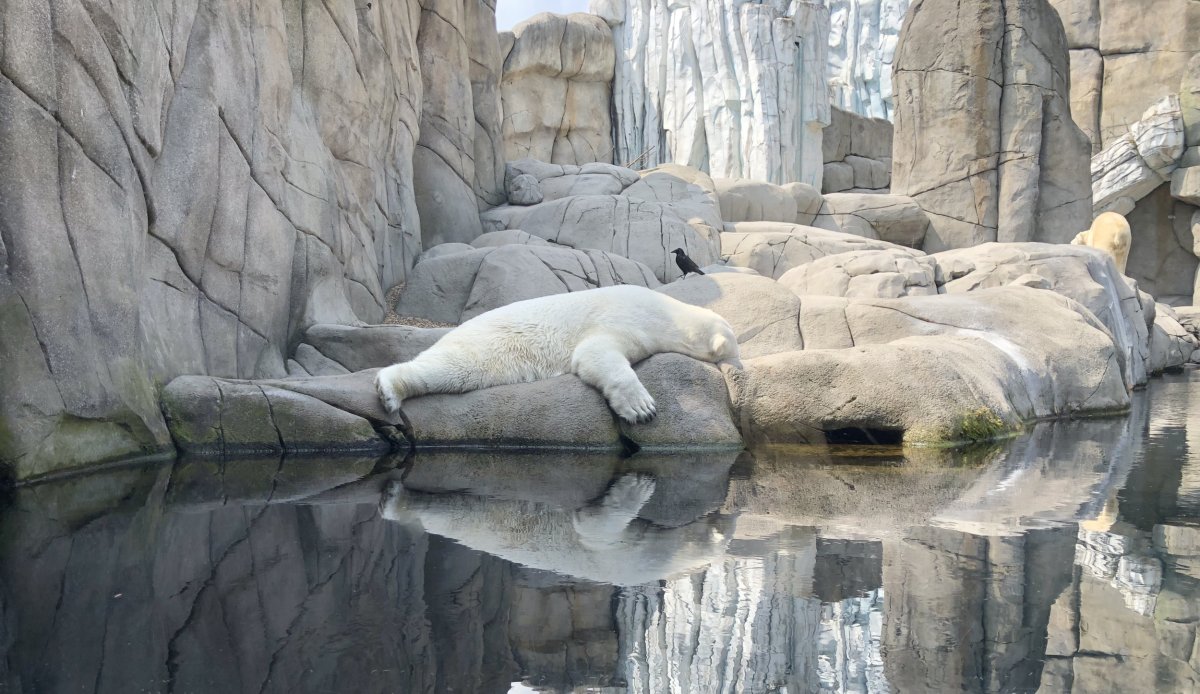In a scene straight out of a Disney movie, a polar bear that had been estranged from her twin sister for two years after her mother rejected her has finally been reunited with her long-lost sibling.
Laerke had grown up separately from her sister until the cubs reached the age that the bears naturally go separate ways to their mothers.
Polar bears are native to the Arctic Circle, spending most of their time hunting for seals on the sea ice. The International Union for Conservation of Nature reported in 2015 that the global population of polar bears may be between 22,000 and 31,000, with the species being classified as "vulnerable" on the IUCN Red List.

"Sister, sister – never knew how much I missed ya," Detroit Zoo wrote in a Facebook post celebrating the reunion. "We are happy to report that polar bears Astra and Laerke have successfully been reintroduced!"
The twins, Astra and Laerke, were born in Detroit Zoo in November 2020 by their mother, Suka. However, Laerke was separated from them after she had a medical emergency that required constant care from the zookeepers. When the latter attempted to return Laerke to the family, Suka rejected her daughter.
Sister, sister – never knew how much I missed ya.We are happy to report that polar bears Astra and Laerke have successfully been reintroduced! These twins were separated a few days after their...
"These twins were separated a few days after their birth because Laerke had a medical emergency that required around-the-clock care. By the time she recovered, their mother, Suka, did not recognize Laerke as her own," Detroit Zoo wrote on Facebook.
As of December 2022, there were 39 polar bears in captivity in the U.S. alone, of which 20 were housed in zoos, according to U.K.-based animal-rights charity Born Free.
A report from the charity found that polar bear mothers are much more stressed when they give birth in captivity than in the wild. This may contribute towards the rejection of cubs, especially if they have been temporarily removed from the den by the zookeepers. The report also found that some studies have shown that over half of polar bear cubs born in captivity die fewer than 30 days after birth.
Laerke instead grew up apart from her sister and mother, living alongside an abandoned grizzly bear named Jebbie.
"The cubs grew up separately, Astra with Suka and Laerke with grizzly bear playmate Jebbie – who offered her much need[ed] socialization. Now at 2-and-a-half years old, Astra and Laerka are back together again and seem to be making up for lost playtime!" the zoo wrote.
The sisters had been eased into their reunion, meeting and interacting from adjoining cages. On April 11, Laerke and Astra were officially moved into a joint enclosure after a brief period of reintegration, where the pair met and interacted with one another in adjoining cages. The pictures shared in the Detroit Zoo Facebook post show the two sisters play-fighting and enjoying each other's company once again.
While Laerke and Astra's story may be a happy one, the majority of polar bears in captivity are often kept in enclosures much too small for the animals, the Born Free report found. This can lead to the development of stressed and aggressive behaviors.

The bears can also be stressed by heat when they are housed in areas of the world that are the polar opposite of their native Arctic environment, such as zoos in Albuquerque, New Mexico, and in Italy. Kept in close quarters with other species, captive polar bears are more likely to contract diseases. The animals have even been found to have become injured after consuming foreign objects thrown into their enclosures by visitors.
However, some argue that, despite their lacking conditions, zoos may be crucial to saving polar bears from extinction. The Arctic sea ice upon which wild polar bears rely is rapidly melting because of climate change. In a study published in the journal Earth's Future, scientists said that the summer Arctic sea ice may be completely gone by 2100.
Do you have a tip on a science story that Newsweek should be covering? Do you have a question about polar bears in captivity? Let us know via science@newsweek.com.
Uncommon Knowledge
Newsweek is committed to challenging conventional wisdom and finding connections in the search for common ground.
Newsweek is committed to challenging conventional wisdom and finding connections in the search for common ground.
About the writer
Jess Thomson is a Newsweek Science Reporter based in London UK. Her focus is reporting on science, technology and healthcare. ... Read more
To read how Newsweek uses AI as a newsroom tool, Click here.








